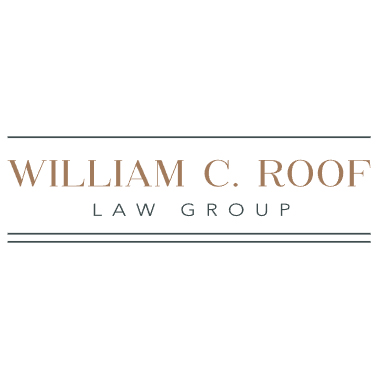
Florida has some of the country’s most generous homestead protections. This means that if you have a qualifying property, you can save on your taxes and protect your home from creditors. If you devise your property to a qualifying family member or pass it down through a will or trust, that person can enjoy those same protections as well.
To ensure that your loved ones can enjoy the benefits of your homestead, it’s recommended that you work with an experienced attorney to create a customized estate plan. Here’s what you need to know about devising Florida homestead property.
What Is Florida Homestead Property?
Florida’s homestead property laws can provide considerable protection. To qualify for the exemption, however, you must meet stringent eligibility requirements, including the following:
- You must be a Florida resident
- If in a city, the property must be on no more than half an acre of land
- If outside a city, the property must be on no more than 160 acres
- You must intend for the home to be your primary residence
- You must live in the home
If you own multiple qualifying properties, only one may qualify as a homestead property. You can own the homestead personally, or it can be part of a revocable trust. However, properties owned by corporations or similar entities don’t qualify.
Given the considerable protection the Florida Constitution offers homeowners, it may seem like there would be a waiting period or application process to qualify. However, if a property of yours meets the homestead property criteria and you intend to make it your permanent residence, you automatically qualify for Florida homestead protections.
It’s important to note that while you don’t have to apply or wait a certain amount of time for most Florida homestead protections to take effect, you must apply for the homestead tax exemption.
Homestead Protections Under Florida Law
Florida’s homestead exemptions are meant to promote stability by allowing homeowners to pass property to heirs and shielding them from the possibility of losing that property to creditors. The Florida Constitution includes three primary types of protection:
- Protection from creditors
- Limits on taxation
- Restrictions on inheritance
Here’s a closer look at each protection and how it works.
Protection From Creditors
Florida’s homestead law protects homesteads from most kinds of creditors (but not all). For example, homesteads are exempt from judicial forced sale and attached judgment liens.
Let’s say you owe substantial unpaid debts, and a creditor sues you for it and wins. If your home isn’t a homestead property, the creditor may be legally allowed to recoup your unpaid debts through one of the following means:
- Judgment Lien: Allows the creditor to take possession of the home if you don’t pay as agreed
- Forced Sale: Allows the creditor to seize your home and sell it to recover the debt
If your home qualifies for protection under the homestead provision, your creditors would be barred from taking these actions even if they win a lawsuit.
As mentioned, this kind of protection applies to many creditors but not all. Here are some situations where your home could be seized and sold if you don’t pay a debt:
- Mortgage Debt: If you don’t pay as agreed, the lender may foreclose
- Contractor Liens: If a contractor places a lien on your home, it can’t be removed just because your home is a homestead
- Homeowners Association (HOA) Fees: If you don’t pay HOA dues, the HOA could place a lien on or sell your home
- Tax Debt: If you fall behind on your taxes and can’t pay, your home could be sold to pay your debts
- Fraud: If you bought your home with illegally obtained funds, it can be seized and sold
Bankruptcy is another possible exception. Generally speaking, there’s no waiting period for the asset-protection benefits of a homestead. However, if you declare bankruptcy, your home will only be fully protected from creditors if you’ve lived in Florida for at least 40 months.
If you’ve been a Florida resident for fewer than 40 months, only a portion of your homestead can be protected from creditors. Federal law determines the amount protected.
Knowing when your homestead property is safe from seizure is vital. If you’re facing the possibility of a lien, an attorney can help you understand whether homestead protections might be able to shield your property.
Limits on Taxation
The Florida homestead tax exemption (discussed in more detail later) allows Florida residents to lower the assessed value of a homestead property to reduce the total property tax burden.
However, the Florida Constitution has another protection in place for homesteads: an amendment called “Save Our Homes.” This amendment serves to protect homestead owners from the effects of rapidly appreciating real estate values.
If you’ve applied and qualified for a homestead exemption, Save Our Homes limits the increase in your home’s assessed value to the lesser of the following figures:
- Three percent
- The change in the National Consumer Price Index (CPI)
This may sound straightforward, but it becomes a bit more complicated if you move.
For example, if you purchase a homestead property, the assessed value cap from the previous owner will be removed, and the property’s value will be reassessed. If you qualify for the homestead exemption, you can limit the home’s increase in assessed value each year.
Depending on how long the previous owner lived in the home, you could find yourself paying considerably more in property taxes. However, if your old home was a homestead property, you may be able to transfer some of your savings to the new home. This is called portability. You must apply and be approved to qualify.
Restrictions on Inheritance
Florida homestead law limits who can inherit a homesteaded property. These restrictions are intended to ensure that a homeowner’s family has a place to live after their death. Homestead law can be highly complex when it comes to inheritance.
One of the most notable restrictions is that a decedent’s homestead property must be passed down to a surviving spouse and minor children; this is true even if the will says otherwise. If the property owner doesn’t have a surviving spouse or minor children, the homestead may be devised as they please.
Devising Homestead Property With a Will
Florida’s homestead protections are fairly unique in that they can be passed down to family members after the property owner’s death. If you’re updating your will or drafting one for the first time, you should make sure its provisions are in line with Florida laws for devising homestead property.
If your will contradicts the law, the issue will likely be spotted when it comes time to transfer the deed. You can save your loved ones considerable time, stress, and uncertainty by ensuring that your will is in line with the homestead law.
Here’s how to devise your homestead with a will while ensuring that your heirs can enjoy the benefits of homestead protections.
If You Have a Surviving Spouse and Minor Children
If you have both a surviving spouse and surviving minor children, your spouse will inherit the property as a life estate. This means that your spouse has the right to live in and use the property throughout their lifetime, but it must pass to your children after their death.
This is the default way your property will pass to your children and spouse. However, your spouse may opt for a tenancy-in-common (TIC) election in which they opt for an immediate 50/50 ownership split with your children. With this option, your spouse can sell their share of the property if they chooses to.
Your spouse will only have six months after your death to make a TIC election. This part of the law can be quite nuanced, and there are many factors to consider. The best way to prepare is to thoroughly discuss the various options with your spouse and your estate planning lawyer ahead of time.
If You Have a Surviving Spouse and No Minor Children
If you’re survived by a spouse but no minor children at the time of your death, passing down the homestead will be much simpler. Your spouse is entitled to inherit the homestead. If you create a will that says anything different, that portion of the document will be declared invalid, and the homestead will pass to your spouse.
If You Have Minor Children and No Surviving Spouse
If you have minor children but no spouse, your children will inherit the homestead after your death. However, because a minor child can’t technically inherit a property directly, the logistics of this situation can be challenging.
Typically, when a minor child inherits a property when they’re under 18, they must have a guardian to manage the property until they’re of legal age. This is where estate planning becomes particularly important.
Your plan should name guardians for your children who can step in if you pass away and there’s no surviving parent. Your attorney can help you make this and other key estate planning decisions.
If You Have No Surviving Spouse and No Minor Children
If you don’t have a spouse or minor children, you may devise the property freely. In other words, you’re welcome to will it to whomever you’d like.
That being said, the homestead protections will only continue to apply if you devise the property to one of the types of heirs included in Florida’s laws of intestate succession, which include:
- Your children
- Your grandchildren
- Your other descendants
- Your siblings
- Your nieces and nephews
- Your cousins
- Your aunts and uncles
- Your parents
The laws surrounding intestate succession can be complex. If you have no spouse or minor children and want to devise your homestead to someone else, your best bet is to consult an estate planning attorney. The right lawyer can make sure there won’t be any issues with your chosen heir receiving homestead protections.
Inheriting Florida Homestead Property
If you inherit a property, its status as a homestead will be determined at the time of the property owner’s death. This means that if the property qualifies as a homestead and you qualify as an heir under Florida intestacy law, you’ll immediately benefit from homestead protections.
This may not always be of paramount concern, but it’s critical if you (and other heirs, if applicable) decide you want to sell the home.
Florida homestead protections shield both the property and the proceeds from its sale from creditors. For instance, if you inherit your mother’s homestead, her creditors may not attempt to seize the home from you. They also may not attempt to recover any of the funds you received after the sale.
Unfortunately, while creditors know that attempting to seize funds from a homestead property sale is illegal, that doesn’t mean the less scrupulous among them won’t try. If you encounter any issues when inheriting or selling a homestead, contact a lawyer right away.
Tax Benefits of Florida Homestead Exemption
If you want to take advantage of the Florida homestead tax exemption, you must do the following:
- Apply with your county property appraiser’s office
- Provide proof that the homestead is your primary residence
- Annually verify your continued eligibility if approved
You should do this as soon as possible after moving into a homestead property to take advantage of the generous tax savings available. If you successfully claim the homestead tax exemption, you’ll be able to claim an exemption of up to $50,000. This includes:
- $25,000 exemption from all property tax on the first $50,000 of the homestead’s value
- Additional $25,000 exemption from non-school taxes on value between $50,000 and $75,000
These exemptions can be easier to understand in practice. Here’s an example of how the homestead exemption would impact the taxes owed on a $100,000 home:
- First $25,000 in Value: Exempt from all property tax, including school district taxes
- $25,000–$50,000: Taxable
- $50,000–$75,000: Exempt from all taxes except school district taxes
- $75,000 and Above: Taxable
These taxes are based on the assessed value of the home, and thanks to the Save Our Homes Amendment, there’s a cap on the annual assessed value increase for homesteads.
This portion of the law plays a critical role when it comes to keeping homestead properties in the family. Lower taxes make owning a home more affordable, which in turn may make it easier for heirs to adjust to paying taxes on homes they suddenly inherit.
Important Considerations for Homestead Property Owners
To the uninitiated, Florida’s homestead protections may appear as simple as claiming a tax credit. However, making a property your homestead isn’t a decision to make lightly. The homestead exemption can save you money on taxes and help shield your home when you most need to protect yourself.
You also shouldn’t forget about those who stand to inherit the property after your death. If you go through the challenge of estate planning now, you can help your heirs avoid the additional stress and grief that comes with having to navigate a confusing inheritance process while they’re already mourning.
If you’re unsure about whether or how to devise your homestead property or have other questions or concerns regarding estate planning, William C. Roof Law Group is here to help. Contact us today to book a consultation and get the reliable guidance you need.
The contents of this article are not comprehensive, they provide only a general overview of the subject matter discussed. This article does not establish a client-attorney relationship with the reader, and no legal decisions should be made based on the article’s contents. Because every legal matter arises under unique facts specific to the client, no legal decision should be made without consulting a licensed attorney.


